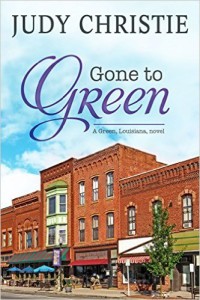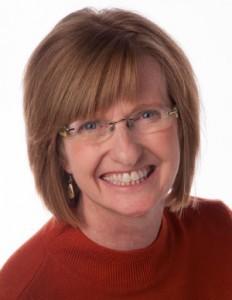The Faith and Values of Sarah Palin
October 26th, 2010 It is time for a FIRST Wild Card Tour book review! If you wish to join the FIRST blog alliance, just click the button. We are a group of reviewers who tour Christian books. A Wild Card post includes a brief bio of the author and a full chapter from each book toured. The reason it is called a FIRST Wild Card Tour is that you never know if the book will be fiction, non~fiction, for young, or for old…or for somewhere in between! Enjoy your free peek into the book!
It is time for a FIRST Wild Card Tour book review! If you wish to join the FIRST blog alliance, just click the button. We are a group of reviewers who tour Christian books. A Wild Card post includes a brief bio of the author and a full chapter from each book toured. The reason it is called a FIRST Wild Card Tour is that you never know if the book will be fiction, non~fiction, for young, or for old…or for somewhere in between! Enjoy your free peek into the book!
You never know when I might play a wild card on you!
and the book:
The Faith and Values of Sarah Palin
Frontline Pub Inc (September 21, 2010)
***Special thanks to Anna Coelho Silva | Publicity Coordinator, Book Group | Strang Communications for sending me a review copy.***
 Stephen Mansfield is the New York Times best-selling author of The Faith of George W. Bush, The Faith of Barack Obama, Benedict XVI: His Life and Mission, and Never Give In: The Extraordinary Character of Winston Churchill, among other works of history and biography. Founder of both The Mansfield Group, a consulting and communications firm, and Chartwell Literary Group, which creates and manages literary projects, Stephen is also in wide demand as a lecturer and speaker.
Stephen Mansfield is the New York Times best-selling author of The Faith of George W. Bush, The Faith of Barack Obama, Benedict XVI: His Life and Mission, and Never Give In: The Extraordinary Character of Winston Churchill, among other works of history and biography. Founder of both The Mansfield Group, a consulting and communications firm, and Chartwell Literary Group, which creates and manages literary projects, Stephen is also in wide demand as a lecturer and speaker.
Visit the Stephen’s website.
 David A. Holland is an author, speaker, media consultant, and award-winning copywriter who writes the popular blog BlatherWinceRepeat.com and the satirical ChrisMatthewsLeg.com. He is the co-author of Paul Harvey’s America, as well as numerous articles, essays, and opinion pieces. David makes his home with his wife and daughters in Dallas, Texas.
David A. Holland is an author, speaker, media consultant, and award-winning copywriter who writes the popular blog BlatherWinceRepeat.com and the satirical ChrisMatthewsLeg.com. He is the co-author of Paul Harvey’s America, as well as numerous articles, essays, and opinion pieces. David makes his home with his wife and daughters in Dallas, Texas.
Visit the David’s blog.
Product Details:
List Price: $22.99
Hardcover: 256 pages
Publisher: Frontline Pub Inc (September 21, 2010)
Language: English
ISBN-10: 1616381647
ISBN-13: 978-1616381646
ISLAND BREEZES
This book is composed of three sections – beginnings, politics and the national stage. It is part biography and part commentary.
I’ve read quite a bit about Alaska and even spent a couple weeks there, but I didn’t really know a lot about what makes an Alaskan different from those of us in the lower 48.
I haven’t quite finished the book. I didn’t want to rush through without taking time to really absorb it. Oh, but what I’ve read has taught me a lot. This book is instrumental in teaching me about Sarah Palin’s background and what makes her tick.
Sarah grew up believing that she had a destiny, God’s plan for her life. She’s living iit. Now that I’ve learned more about her and her culture and values, I respect her even more for standing up for herself and our country.
AND NOW…THE FIRST CHAPTER:
Do not handicap your children by making their lives easy.1
—Robert A. Heinlein
It is a warm summer day in June of 1964, and at Christ the King Roman Catholic Church in Richland, Washington, a tender moment is unfolding. A small group of the faithful has gathered before a candled altar and a patiently waiting priest. Though the church is spare, it is transformed into regal splendor by the color of deep green evidenced in the vestments of the priest and in the cloth that adorns the altar. This is the color that the Christian church has used for centuries to signify the liturgical season of Pentecost, in which the coming of God’s Spirit is celebrated, in which refreshing and new birth are the themes. It is a fitting symbolism for today’s event, for a child is soon to be baptized. When all are settled, the priest steps to the fore and nods his head to a young family. They move, solemnly, to the baptismal font—a father, a mother, a two-year-old boy, a one-year-old girl, and the infant who is the object of today’s attention. “Peace be with you,” the good priest begins.“And also with you,” those gathered respond.“And what is the child’s name?” the priest asks. “Sarah Louise Heath,” comes the answer.
“And what is your name?” the priest asks the parents.
The answer comes, but it is obvious to all that the energetic part of that answer, the one filled with eagerness and faith, has come from the child’s mother. She is a striking figure. Slightly taller than her husband, she is lean and feminine, possessing a sinewy strength that is unusual for a mother of three. Her eyes are intelligent, slightly wearied but quick to flash into joy. Her mouth is wise, reflecting a sense of the irony in the world and yet disarmingly sweet.
It is her voice, though, that her children and her friends will comment upon most throughout her life. It has a musical lilt that rises and falls with meaning and emotion. It makes the most mundane statement a song, transforming a book read to children before bed or a prayer said before a family meal into a work of art.
This young mother was born Sally Ann Sheeran in 1940 and so took her place in a large, proud, well-educated Irish Catholic family in Utah. As would become the pattern of her life, she would not be there long. When she was three, her family moved to Richland, Washington. Her father, known to friends as Clem, had taken a job as a labor relations manager at the Washington branch of the Manhattan Project, whose task it was to perfect the atomic bomb sure to be needed before the Second World War, then well underway, was over. From her father, Sally acquired a passion for doing things well, a love of sports, and unswerving devotion to Notre Dame, a loyalty questioned in the Sheeran home only at great peril.
It was Sally’s mother, Helen, who taught her the domestic skills and devotion to community that would become her mainstays in the years ahead. Helen was widely known as a genius with a sewing machine and made clothes not only for her own family but also for dozens of others in her town. She also had an uncanny ability to upholster furniture. Neighbors remember the astonishing quality of her work and how she refused payment, though her fingers were often swollen and bleeding from the hours she spent stretching leather over wooden frames or forcing brass tacks into hardened surfaces. Helen taught her children the joy of the simple task done well, that the workbench and the desk are also altars of God not too unlike the altar at the Catholic church they attended every week.
Sally came of age, then, in a raucous, busy family of overachievers. There were piano lessons and sports and pep squads and sock hops. Achievement was emphasized. All the Sheeran children did well. Sally’s brother even earned a doctorate degree and became a judge. Sally herself finished high school and then began training as a dental assistant at Columbia Basin College.
“What are you asking of God’s church?” the priest intones from the ancient Latin text.
“Faith,” respond the child’s parents.
“What does faith hold out to you?” he asks.
“Everlasting life,” they answer.
“If, then, you wish to inherit everlasting life, keep the commandments, ‘Love the Lord your God with all your heart, with all your soul, and with all your mind; and your neighbor as yourself.’”
At this moment the priest leans over young Sarah, still in her mother’s arms, and breathes upon her three times. “Depart from her, unclean spirit, and give place to the Holy Spirit, the Advocate.” It is then that he traces the sign of the cross upon the child’s forehead and prays, “Lord, if it please you, hear our prayer, and by your inexhaustible power protect your chosen one, Sarah, now marked with the sign of our Savior’s holy cross. Let her treasure this first sharing of your sovereign glory, and by keeping your commandments deserve to attain the glory of heaven to which those born anew are destined; through Christ our Lord.”
At these words, some who have gathered shift their eyes to the young father of the child being baptized. His name is Chuck. He is a good man, all agree, and he loves his family, but he is only tolerant of his wife’s faith. He does not share it. He keeps a distance from formal religion, and those who know his story understand why.
He was born in the Los Angeles of 1938 to a photographer father and a schoolteacher mother. His father, it seems, had gained some notoriety for his work, and there are photographs of young Chuck with luminaries of the Hollywood smart set and even with sports stars like boxer Joe Louis. Something went wrong, though—this is the first of several unexplained secrets in the Heath story—and when Chuck was ten, his father moved the family to Hope, Idaho. His mother taught school again, and his father drove a bus and freelanced.
As often happens after a move to a new place, the Heath family was thrown in upon itself. And here is where the tensions likely arose. Chuck’s mother was a devoted Christian Scientist. She believed that sin and sickness and even death were manifestations of the mind. If one simply learned to perceive the world through the Divine Mind, one would live free from such mortal forces. It likely seemed foolishness to a teenaged Chuck, who was not only discovering the great outdoors and finding it the only church he would ever need but also discovering his own gift for science, for decoding the wonders of nature. There was tension in the home, then, between this budding naturalist and his mystic mother. Arguments were frequent, and from this point on, young Chuck seemed intent upon escaping his parent’s presence as much as possible.
He soon discovered his athletic gifts too, and, though his parents thought such pursuits were a waste of time, he chose to ride the bus fifteen miles every day to Sandpoint High School and then hitchhike home again just so he could play nearly every sport his school offered. He found gridiron glory as a fullback behind later Green Bay Packers legend Jerry Kramer.
These were agonizing years, though. He routinely slept on friends’ couches when he just couldn’t face hitchhiking home. He was nearly adopted by several families of his fellow players. Everyone knew his home life was torturous and tried to help, but for a boy in high school to have no meaningful place to belong, no parents who loved him for who he was without demanding a faith he could not accept—it was, as Sarah Palin herself later wrote, “painful and lonely.”
After graduation from high school and a brief season in the Army, Chuck enrolled in Columbia Basin College. Now he could give himself fully to learning the ways of nature, long his passion and his hope. He collected rocks and bones, found the insides of animals and plants a fascinating other world, and thrilled to his newly acquired knowledge of geology and the life of a cell. He was a geek, but a handsome, athletic geek whom girls liked. It was during this time that he enrolled in a college biology lab and found himself paired with that lanky beauty Sally Sheeran.
“Almighty, everlasting God, Father of our Lord Jesus Christ,” the minister implores, “look with favor on your servant, Sarah, whom it has pleased you to call to this first step in the faith. Rid her of all inward blindness. Sever all snares of Satan, which heretofore bound her. Open wide for her, Lord, the door to your fatherly love. May the seal of your wisdom so penetrate her as to cast out all tainted and foul inclinations, and let in the fragrance of your lofty teachings. Thus shall she serve you gladly in your church and grow daily more perfect through Christ our Lord.”
It says a great deal about Chuck and Sally Heath that after they had married—after they had brought three children into the world and begun working in their professions and coached sports and enjoyed their outdoor, adventurous lives—there was still something missing. Sandpoint simply wasn’t enough. Chuck, ever the romantic, had begun reading the works of Jack London—The Call of the Wild, White Fang, and The Sea Wolf—and through these the great land in the north—Alaska—began calling to him. As a neighbor later reported, “The call of the wild got to him.” This neighbor did not mean the London novel, but rather that mysterious draw to the raw and untamed that has lured men to Alaska for centuries. It did not hurt that Alaska was in desperate need of science teachers like Chuck, and that the school systems there were offering $6,000 a year, twice what Chuck was making in Sandpoint. With a growing family and dreams that Idaho could not contain, Chuck Heath turned to his wife and said, “Let’s try it for one year and see what happens.” Sally should have known better. They would never come back to Idaho again. Alaska was the land of Chuck’s dreams and always would be.
It also says a great deal about Chuck and Sally Heath that they ventured north to Alaska just days after the state had been rocked by one of the worst earthquakes in history. On March 27, 1964, what became known as the Good Friday Earthquake shook Alaska at a 9.2 Richter scale magnitude for nearly five minutes. The quake was felt as far away as eight hundred miles from the epicenter.2 Experts compared it to the 1812 New Madrid earthquake that was so powerful it caused the Mississippi River to run backward, stampeded buffalo on the prairie, and awakened President James Madison from a sound sleep in the White House. The Good Friday Earthquake did hundreds of millions dollars in damage, cost dozens of lives, and vanquished entire communities in Alaska, but even this devastation could not keep the Heath family away.
They would live first in Skagway, then in Anchorage, and finally they would be able to afford their own home in the little valley town of Wasilla. Chuck would teach sciences and coach, and Sally would do whatever paid—work in the cafeteria, serve as the school secretary, even coach some of the athletic teams.
This is what they did. Who they were is the more interesting tale.
The Heaths were determined to create an outpost of love, learning, and adventure in their snowy valley in the north. Their lives were very nearly a frontier existence, as we shall see, but their learning and their hunger to explore lifted them from mere survival. Chuck found Alaska an Elysium for scientific inquiry, and as he hunted and served as a trail guide, he collected. The Heath children would grow up in a home that might elsewhere have passed for a small natural history museum. Years after first arriving in Alaska, when their famous daughter had forced their lives into the international spotlight, the Heaths would welcome reporters who sat at their kitchen counter and marveled at the skins and pelts and mounts—dozens of them—that adorned the house. There were fossils and stuffed alligators and hoofs from some long-ago-killed game and samples of rock formations and Eskimo artifacts. The reporters had been warned. In the front yard of the Heath house stood a fifteen-foot-tall mountain of antlers, most all from game shot by Chuck Heath.
Yet what distinguished the Heath home was its elevated vision, its expectations for character and knowledge. There would come a day when Sally’s spiritual search would lead her in a different direction than her husband had chosen—his conflicts with his Christian Science mother distancing him from traditional faith—and this would have to be managed. But there was complete agreement about the other essentials. Work was sacred. Everyone was expected to labor for the good of the family. Knowledge was paramount. Theirs was a home filled with books, and nearly each one was read aloud more than once. Since both Chuck and Sally were teachers, dinner-times were often occasions of debate or discussion, which Chuck frequently began by reading from a Paul Harvey newspaper column or by quoting from a radio broadcast he had heard during the day. So intent upon the primacy of learning were Chuck and Sally that when a television finally did make its way into their home, it lived in a room over the unheated garage where a potential viewer had to have a death wish to brave the cold. Rather than what Chuck and Sally called the boob tube, in the warmth of the house were the poetry of Ogden Nash and Robert Service, the works of C. S. Lewis, and most of the great books of the American experience.
There was also love. It was deep, transforming, and infectious in the Heath home. When friends of the Heath children missed their school bus home, they routinely made their way to the Heaths’ house. Their parents knew and understood. It was the place where strangers were always welcome, where a story was always being told, and where you merged seamlessly into the family mayhem the moment you stepped through the door. Some of those friends of the Heath children, now adults, recall that the closest thing they ever experienced to a healthy family was in Chuck and Sally’s home.
And so the Heaths did it. They carved out the life they had dreamed in the frozen wilds of Alaska. They took the best of their family lines and, refusing the worst, built a family culture of courage and learning and industry and joy. And this was the family soil from which Sarah Palin grew.
Thus, the reverend father comes to an end:
Holy Lord, almighty Father, everlasting God, source of light and truth, I appeal to your sacred and boundless compassion on behalf of this servant of yours, Sarah. Be pleased to enlighten her by the light of your eternal wisdom. Cleanse, sanctify, and endow her with truth and knowledge. For thus will she be made ready for your grace and ever remain steadfast, never losing hope, never faltering in duty, never straying from sacred truth, through Christ our Lord.3
The service concluded, the Heath family and their near relatives walk out into the northwestern sun. It is June 7. Already there are tears, and they are not tears of joy. The Heaths’ presence in Richland is not just for the sake of the baptism. They have come to say good-bye. Alaska calls to them, and they will leave in a few short days to make the nineteen-hundred-mile drive to their new home in the land of the north. Their relatives grieve, but the Heaths, particularly Chuck, cannot hide their joy at the looming adventure. Nor can they hide the sense that they will be changed by their new land, that somehow they will become one with it, and that it will become mystically intertwined with their destiny in ways they could never imagine.
In a matter of few days then, attended by the tears of their loved ones, the Heath family step toward the great land of their dreams.













